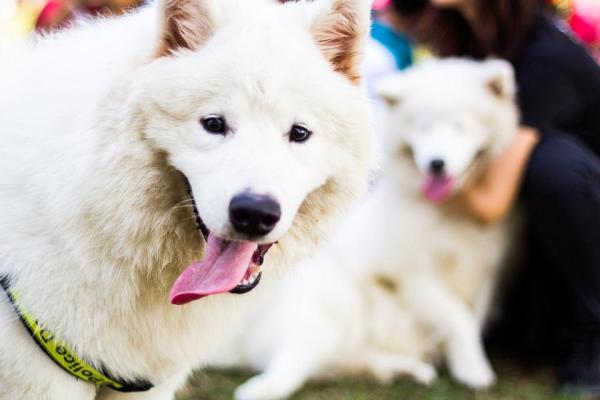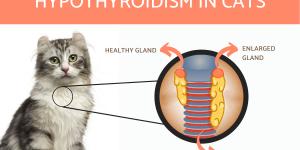Symptoms of Nutritional Deficiencies in Dogs



See files for Dogs
Do you feed your pet properly? This is one of the questions that you should ask yourself on a regular basis. A dog's diet is one of the factors that has a bigger influence on their health. As such, you should always make sure that the food you give them meets their nutritional requirements. Failure to do so could see your dog suffer from various health problems.
Nutritional deficiencies are sometimes not caused by dietary issues, but by internal problems that prevent correct intestinal absorption. Therefore, any symptoms of a nutritional deficiency should be taken very seriously.
In this Animal Wised article we will show you how to detect nutritional deficiencies in dogs.
General symptoms
Nowadays you can find high quality balanced dog feed on the market, which are an excellent way of providing your pets with all the nutrients they need. However, low quality feeds and the preparation of homemade meals without nutritional supervision continues to be a problem. This is the reason why some dogs suffer from nutritional deficiencies.
A dog whose body has all the required nutrients, which are given in the correct proportions, is a healthy dog. On the other hand, a dog's health can become compromised when it has a nutritional deficit.
The general symptoms of nutritional deficiencies are those that suggest the dog is not well, whilst not telling you anything about the specific nutrient that is lacking:
- Changes in thirst and urine production
- Changes in the appearance and consistency of feces
- Dull coat
- Sad look
- Eating disorders
- Sudden changes in body weight
- Skin disorders
- Behavioral changes

Symptoms of carbohydrate deficiency
Carbohydrates are macronutrients whose main role is to provide energy. As such, a dog which is not given enough carbohydrates will at first appear weak and tired in general. If this deficiency isn't corrected, the lethargy will progressively increase.
If the body does not have enough carbohydrates, it starts using fats as an energy source. Fats used for energy leave a metabolic waste known as ketone bodies.
The clearest sign that there is a problem with carbohydrates (whether a deficiency or diabetes) is when the dog's breath smells of acetone.

Symptoms of protein deficiency
Proteins have a structural function, serving to repair, maintain and build new tissues and small structures necessary for the body's correct functioning (the antibodies found in the immune system are formed by protein).
A dog affected by a protein deficiency will mainly show the following symptoms:
- Loss of muscle mass
- Developmental disorders
- Infertility
- Repeated infectious diseases owing to an immune deficiency
- Changes in skin and fur

Symptoms of lipid deficiencies
Lipids or fats are absolutely necessary for forming cell membranes, protecting organs and transporting fat-soluble vitamins.
Harmful fats are also not recommended for dogs, who should only consume essential fatty acids, also known as healthy fats.
Lipid deficiency is shown through the following symptoms:
- Dry coat
- Flaking and seborrhoea
- Susceptibility to infectious diseases
- Weight loss

Symptoms of vitamin deficiency
Vitamins are micronutrients, meaning that the dog's body needs them in small proportions. However, they are essential because they play a role in numerous chemical reactions.
A vitamin deficiency will show some symptoms or others depending on the functions of the vitamin which is lacking. However, the following symptoms are all signs of a deficit of this micronutrient:
- Loss of appetite
- Dermatitis
- Decreased body temperature
- Changes in tongue color
- Alterations in their fur
- Clotting problems
- Neurological signs

Symptoms of mineral deficiency
Minerals, just like vitamins, are micro nutrients, and the deficit symptoms will depend on the particular function performed by the mineral that is lacking.
Despite this, there are some main signs suggesting a deficit of this type of micronutrient. They are the following:
- Growth disorders
- Musculoskeletal disorders
- Anemia
- Repeated infectious diseases
- Restlessness
- Weakness
- Dry skin and loss of fur

What to do if my dog has a nutritional deficiency?
As with many other disorders, it is essential to go to the vet as soon as possible.
A nutritional deficit is not anything banal. As we have seen, the lack of some nutrients can even cause neurological disorders.
The vet must first assess the dog's state of health and determine whether any of the alterations caused by nutritional deficit require drug treatment. It will also be important to identify what particular nutritional deficit that you are dealing with: this can be determined simply by looking at the clinical symptoms, or you can ask for lab tests.
Finally, it is important to get professional advice about the best diet for your pet, and which foods it should be given to meet these particular nutritional needs.

This article is purely informative. AnimalWised does not have the authority to prescribe any veterinary treatment or create a diagnosis. We invite you to take your pet to the veterinarian if they are suffering from any condition or pain.
If you want to read similar articles to Symptoms of Nutritional Deficiencies in Dogs, we recommend you visit our Other health problems category.







 Our Timber Shepherd(otherwise super healthy) has recurring broken claws that are painful for weeks, then fall off. Our other shepherd on the same diet has no such problem. Any ideas about how to help him? They eat a raw food barf diet and sardines for omegas. Thank you
Our Timber Shepherd(otherwise super healthy) has recurring broken claws that are painful for weeks, then fall off. Our other shepherd on the same diet has no such problem. Any ideas about how to help him? They eat a raw food barf diet and sardines for omegas. Thank you







